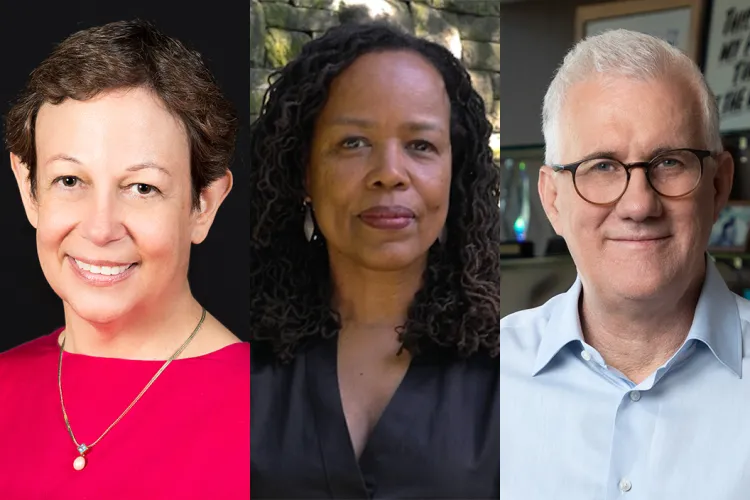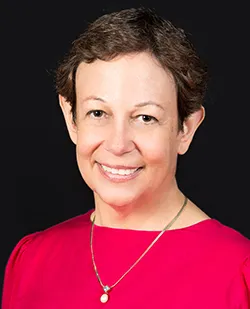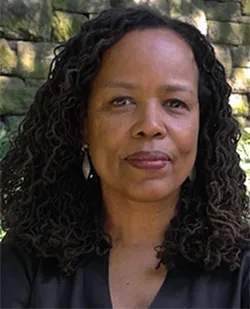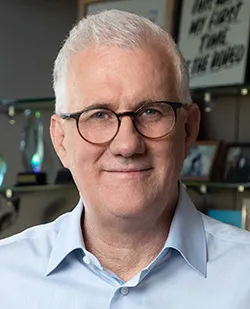Neuroscientist, Cultural Historian, and Media Executive Named 2020 Honorary Degree Recipients

President Valerie Smith will award honorary degrees to neuroscientist Adele Diamond ’74, African American cultural historian Saidiya Hartman, and media executive David T. Linde ’82 at Swarthmore College’s 148th Commencement on May 24. In addition, approximately 400 undergraduates will receive degrees at the ceremony in Scott Amphitheater.
Adele Diamond ’74

Adele Diamond ’74 is the Canada Research Chair Professor of Developmental Cognitive Neuroscience at the University of British Columbia (UBC) in Vancouver. She is a member of the Royal Society of Canada, a national council of distinguished artists, scientists, and scholars, and is recognized globally as a leader and pioneer in the field of developmental cognitive neuroscience.
Diamond’s research concerns executive functions, which are dependent on the brain’s prefrontal cortex and interrelated neural regions and enable people to resist temptations and impulsive reactions. Executive functions also relate to focus, reasoning, problem-solving, and the flexibility to respond to unexpected problems or opportunities. Diamond has demonstrated that these functions are present even in infants during the first year of life and that they can be improved at any age.
In the 1980s, Diamond established the first strong link between infant cognitive development and the functions of a specific brain region. That gave encouragement to others that rigorous experimental work addressing brain-behavior relations was possible in human infants.
Her work on the unusual properties of the dopamine system in prefrontal cortex led to three discoveries that have improved medical treatment for disorders, improving the lives of countless children.
In the 1990s, Diamond identified the biological mechanism causing executive function deficits in children treated for the metabolic disorder phenylketonuria (PKU) and how to prevent or reverse those deficits. Treatment guidelines changed worldwide almost overnight. Diamond also discovered a previously unknown visual deficit in children treated for PKU, a breakthrough that quickly led to another change in treatment guidelines.
In the 2000s, Diamond demonstrated that attention deficit hyperactivity disorder (ADHD) of the primarily inattentive type is a fundamentally different disorder from ADHD that includes hyperactivity, and the doses of medication helpful for the two types of ADHD differ considerably.
Also in the 2000s, Diamond’s team obtained findings with direct and important implications for education. They demonstrated that executive functions can be improved in regular public school classes without expensive technical equipment or specialists. An explosion of interest in the possibility of intervening early to improve executive functions followed.
Diamond’s work has fundamentally changed the way people think about cognitive development, awakening interest in inhibitory control and demonstrating that cognitive abilities thought not to develop until a later age are present earlier; children just needed to be questioned differently.
She is also a dedicated teacher and devotes herself to translational activities including giving scores of invited talks each year to parents and educators around the globe. For eight years, she organized an influential biennial conference that brought the latest findings in developmental psychology and neuroscience to those who work with children on a daily basis.
Diamond graduated from Swarthmore with a degree in psychology and in sociology & anthropology, obtained her Ph.D. from Harvard University in developmental psychology, and completed a postdoctoral fellowship at Yale Medical School in neuroanatomy.
Saidiya Hartman

In her research and writing, 2019 MacArthur Fellow Saidiya Hartman explores the “afterlife of slavery” by critically examining the enduring presence of the institution’s racialized violence in contemporary American society. Her work forces readers to reckon with the stories of “unknown, dispossessed, exploited, and disposable” Black Americans whose lives left little trace in the historical record.
Hartman, a scholar of African American literature and cultural history, serves as professor of English and comparative literature and director of graduate studies of the Institute for Research on Women, Gender and Sexuality at Columbia University.
She has been a Cullman Fellow at the New York Public Library (2016-2017), a Whitney Oates Fellow at Princeton University (2002), a Critical Inquiry Visiting Professor at the University of Chicago (2018), and a Guggenheim Fellow (2018-2019).
Her first book, Scenes of Subjection: Terror, Slavery, and Self-Making in Nineteenth-Century America, was published in 1997. Through slave narratives, plantation diaries, legal cases, and other primary source documents, Hartman illuminates the forms of terror and resistance that shaped Black lives and America in the 1800s.
Her second publication, Lose Your Mother: A Journey Along the Atlantic Slave Route, from 2008, is a historical memoir detailing Hartman’s trip as a Fulbright scholar. The work traces her journey along a former slave trade route in Ghana and her attempts to fill in the empty pages of her family history and to represent the lives of those captured in the transatlantic slave trade and exiled to the Americas.
In 2019, Hartman published Wayward Lives, Beautiful Experiments: Intimate Histories of Social Upheaval, which examines the aspirations and desires of young Black women and the revolution of Black intimate life that unfolded in Philadelphia and New York at the beginning of the 20th century.
Hartman graduated from Wesleyan University in 1984 and received an honorary degree from her alma mater in 2019. She also holds a Ph.D. from Yale University.
David T. Linde ’82

Since 2015, David T. Linde ’82 has served as chief executive officer of Participant (formerly Participant Media), a media company dedicated to entertainment that inspires audiences to engage in positive social change. During his tenure, Linde has spearheaded the company’s realignment around its core content and social impact imperatives and further positioned the company as a forerunner of impact media, the category founder Jeff Skoll first conceptualized and began shaping since the company’s creation in 2004.
As Participant’s CEO, Linde has overseen a content slate that has won 10 Oscars, including two Best Picture awards (Spotlight and Green Book), two Best Foreign Language Film awards (Roma and A Fantastic Woman), and two Emmys (When They See Us and RBG); rebuilt Participant’s global distribution structure across all platforms; restructured its approach to social impact with the hiring of Chief Impact Officer Holly Gordon; and expanded the company’s content approach to include episodic television series and digital short-form video through the acquisition of SoulPancake.
Prior to Participant, Linde had leading roles at Universal Pictures, Focus Features, Good Machine, and Lava Bear Films, where films released during his tenures collectively earned more than $14 billion globally, with 158 Oscar nominations and 34 wins.
While president of Good Machine, Linde served as executive producer of Ang Lee’s Crouching Tiger, Hidden Dragon, which was an international box office success and earned the most Oscar nominations ever for a non-English language film at the time with 10 (later matched by Roma), including Best Picture and Best Director for Lee.
In 2017, Linde was nominated for an Academy Award as a producer on Arrival, made in part by his company Lava Bear Films.
Linde has been recognized with numerous industry awards, including the Will Rogers Motion Picture Pioneer of the Year, General Electric’s Chairman Award for Performance Turnaround, the Anti-Defamation League’s Distinguished Entertainment Industry Award, the New York Magazine: Best of the Industry Award, the Gotham Award for Distinguished Achievement, the Locarno Film Festival’s Premio Raimondo Rezzonico Award, Variety’s EmPOWerment Award and ShowEast’s Bingham Ray Spirit Award. In 2019, Linde received FilmAid’s Richard C. Holbrooke Memorial Award for dedication to humanitarian service.
At Swarthmore, Linde studied history and was motivated to pursue a career in film after producing and screening a film satirizing the James Bond franchise. As a student, he was also member of the Swarthmore Anti-Apartheid Committee, a vital first step in his learning the power of social advocacy.
He is married to Felicia Rosenfeld ’83.
Photo courtesy of Participant



